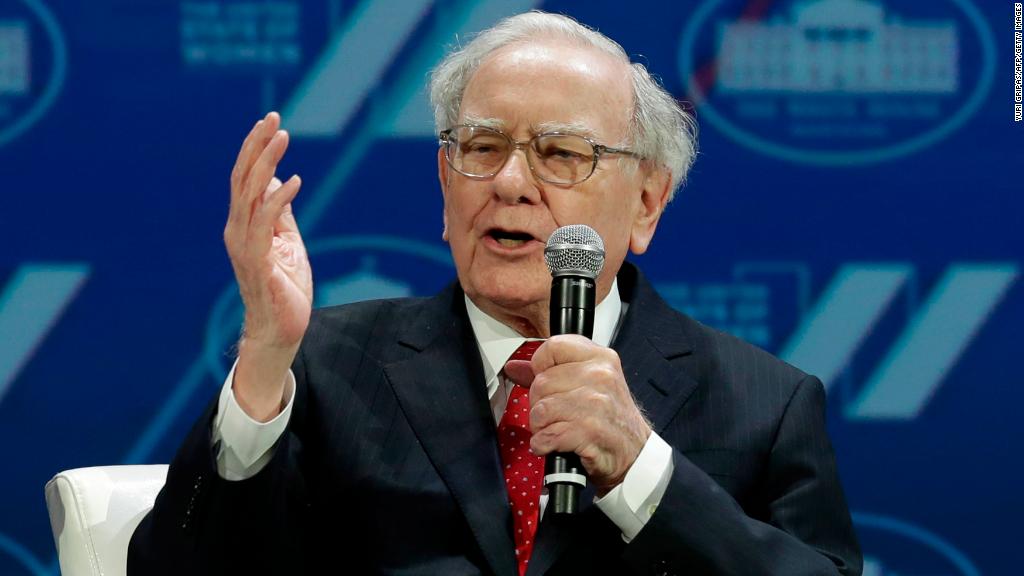
Wells Fargo isn't the only bank where heavy sales pressure led employees to open fake accounts.
A federal review triggered by the Wells Fargo scandal found that "weaknesses" at other banks led employees to open accounts without proof of customer consent — just like Wells Fargo did — according to the Office of the Comptroller of the Currency.
The probe of more than 40 large and midsize banks concluded that the cause of those fake accounts included "short-term sales promotions without adequate risk controls," deficient procedures and other isolated instances of "employee misconduct."
The OCC, the banking regulator that launched the review in 2016, declined to reveal which banks were found to have opened fake accounts or had other issues. It's not clear when these problems occurred either.
The agency said in a statement that the review found "some weaknesses" in the "policies, procedures and controls" of banks concerning their sales tactics.
However, the OCC said the review did not uncover "systemic issues with bank employees opening accounts without the customer's consent."
Banks that were found to have problems "have already taken -- or are in the process of" taking corrective actions such as closing accounts, refunding customers and fixing credit bureau information, the OCC said.
"It's certainly troubling that this appears to be more widespread than one bank," said John Sedunov, a finance professor at Villanova.
A PwC consultant briefed on the findings told the American Banker that the review led the OCC to issue 252 alerts to banks about matters that required attention as well as five industry-wide problems to be fixed.
The OCC declined to comment beyond its statement. PwC declined to comment.
Related: Wells Fargo is selling all its branches in 3 Midwestern states
Wells Fargo (WFC) sent shockwaves through the industry in September 2016 when it admitted to firing 5,300 workers for opening millions of fake accounts.
It quickly emerged that wildly unrealistic sales goals and unrelenting pressure from management led employees to open accounts for customers who didn't want or need them. Some Wells Fargo bankers impersonated their customers and used false email addresses like noname@wellsfargo.com, according to a 2015 lawsuit filed by the city of Los Angeles.
But even then there were signs Wells Fargo wasn't alone. Nearly a dozen current and former employees at large and regional banks such as Bank of America (BAC), Citizens Bank (CFG), PNC (PNC) and SunTrust (STI) told CNNMoney in September 2016 that a sales obsession pervaded their banks too. They described immense pressure to get customers to open multiple accounts.
"Wells Fargo isn't the only one. This is an industry-wide problem," one former banker at a regional lender told CNNMoney.
The OCC said it completed its review in late 2017 and letters to participating banks were sent earlier this year. The agency supervises all national banks, including major lenders such as JPMorgan Chase (JPM), Citigroup (C), Bank of America, US Bank (USB)and PNC. The OCC also regulates federal branches of foreign banks.
A PNC spokesperson said the bank regularly trains employees to have "thoughtful discussions" with customers about financial products. "We only act on what a customer wants to pursue," PNC said.
Citigroup (C), US Bank and Bank of America declined to comment.
Related: Wells Fargo altered documents about business clients
The OCC does not plan to publish a report on its review of bank sales tactics, meaning the scale of the troubles remain a mystery.
"We don't know who the other bad actors are, nor how deep the problems run," said Sedunov, the Villanova professor.
Wells Fargo's fake-accounts scandal, on top of a long list of other problems, has hurt its stock price, caused legal expenses to soar and tarnished its reputation. The bank has been hit with a series of penalties, including unprecedented sanctions from the Federal Reserve that prevent it from growing its balance sheet.
"Wells Fargo went through all of this public scrutiny and suffered a lot -- as they should have. But are other banks going to feel the same effects?" Sedunov asked.
A spokesperson from Wells Fargo declined to comment on the OCC review.
Wells Fargo, under pressure to cut costs, announced an agreement on Tuesday to sell all its bank branches in Indiana, Michigan and Ohio to Flagstar Bank (FBC). The deal marks a retreat by America's second-largest bank from the Midwest.
Flagstar CEO Alessandro DiNello told CNNMoney that the Wells Fargo scandal prompted his bank to investigate its own sales tactics. He said no problems were found.
"We've all learned from the Wells experience," DiNello said.




